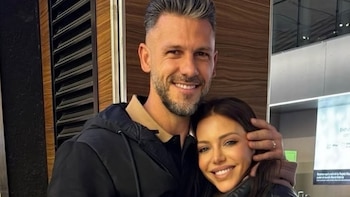
In London 2012, the topic was the temperature of the waters of the Serpentine, the main stage of the open water swimming events and the water section of the triathlon.
In Rio 2016, doubts were raised about the water quality of the Rodrigo de Freitas Lagoon, home of rowing and canoeing.
What’s more, not a few participants speculated about the advantages for local athletes due to the high temperature in Fort Copacabana, the base of water marathon competitions.
We could be even more skeptical and remember that in Beijing 2008, these 10-kilometer events were held at the Shunyi Rowing and Canoeing Park, which was nothing more than a relief channel, a fairly closed space since the specialty is called Open Water.
Probably the craziest speculation in this regard occurred in the 2018 YOG preview, in Buenos Aires. The windsurfing competitions were held in a complex called Peru Beach, in the North Zone of the suburban area of that city. This is a beach on the Rio de la Plata, whose Argentinian shores are frankly high in bacteriological dosage. It was even said that it was an advantage for Argentine athletes who, because they trained in that almost toxic scenario, had an intestinal flora immune to any contagion.
More or less close to reality, more or less sensible the statements, this type of speculation responds to two main factors: the anxiety that many of us have that the Paris games will arrive right now and the search for the dark side of the moon to which some media considered outsiders of these competitions tend to cling to. It happens with the Olympic Games. It happens with the FIFA World Cups. Surely it will also happen with the Oscars or the Grammys.

The truth is that the issue of the state of the Seine River’s waters has been sensitive for quite some time. It doesn’t matter with regard to the adventure of holding an opening ceremony in which delegations arrive at the reference point ashore by sailing through the mythical Parisian branch of water. The issue has to do, once again, with open water and triathlon.
In fact, there has not yet been an official quality control to ensure that these waters have reduced their bacteriological level to what is advisable for a handful of athletes to compete there, however healthy they may be.
In this regard, the French Prime Minister, Emmanuel Macron, once again stated that everything will be in order when the time comes. “I’ll swim there myself but I won’t give the exact date to avoid too many people getting together,” he joked.
More cautious was the Brazilian Ana Marcela Cunha, winner of the 10 km in Tokyo 2021, who advised having a plan B just in case.
No one officially says that such a plan exists. They hardly have it in their folder if they actually consider that the Sena case may not be in order for the first days of August, the date of the tests.
In the meantime, fans of the rings need to be warned: as the big event approaches, questions and doomsday announcements will become more apparent, whether regarding infrastructure or, especially, security.
By the way, it’s worth remembering the words of one of those responsible for Rio 2016 who explained that “there is no perfect organization or team that doesn’t make mistakes. The decisive thing is that that same team knows how to correct the flaws, turn the tables and move forward.”
And if they are not convinced by this argument to feel reassured that, in any case, Paris 2024 will go as planned, let’s remember.
An Olympic event, which was only in Tokyo and because of the games, has such strength and influence on societies, that the world came together again in a single city, after a year and a half of external and internal borders that were completely blocked by the pandemic.
Últimas Noticias
Sinner-Alcaraz, the duel that came to succeed the three phenomenons
Beyond the final result, Roland Garros left the feeling that the Italian and the Spaniard will shape the great duel that came to help us through the duel for the end of the Federer-Nadal-Djokovic era.
Table tennis: Brazil’s Bruna Costa Alexandre will be Olympic and Paralympic in Paris 2024
She is the third in her sport and the seventh athlete to achieve it in the same edition; in Santiago 2023 she was the first athlete with disabilities to compete at the Pan American level and won a medal.

Rugby 7s: the best player of 2023 would only play the medal match in Paris
Argentinian Rodrigo Isgró received a five-game suspension for an indiscipline in the circuit’s decisive clash that would exclude him until the final or the bronze match; the Federation will seek to make the appeal successful.

Rhonex Kipruto, owner of the world record for the 10000 meters on the road, was suspended for six years
The Kenyan received the maximum sanction for irregularities in his biological passport and the Court considered that he was part of a system of “deliberate and sophisticated doping” to improve his performance. He will lose his record and the bronze medal at the Doha World Cup.

Katie Ledecky spoke about doping Chinese swimmers: “It’s difficult to go to Paris knowing that we’re going to compete with some of these athletes”
The American, a seven-time Olympic champion, referred to the case of the 23 positive controls before the Tokyo Games that were announced a few weeks ago and shook the swimming world. “I think our faith in some of the systems is at an all-time low,” he said.





